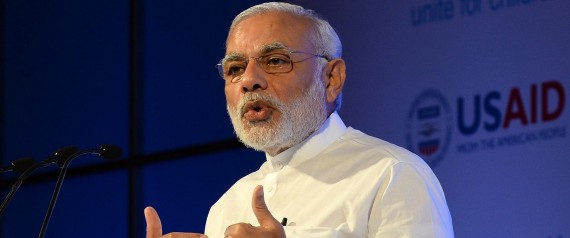US Academics Worried About Modi Visit Need To Do Their Homework


Academics are academics, and public intellectuals are public intellectuals, and sometimes the twain shall meet. Yet many who have crossed the divide -- including Keynes and Friedman, Habermas and Huntington -- have resorted to methods or arguments as public intellectuals that their academic avatars might never have tolerated.
The same presumably applies to the 125 US-based university professors who last week released an open letter to the leaders of technology companies, decrying the "uncritical fanfare" surrounding Prime Minister Narendra Modi's forthcoming visit to Silicon Valley. The statement's authors cite the "potential for abuse" of Digital India and risks to academic freedom as reasons for Silicon Valley executives to not violate their "codes of corporate responsibility when conducting business with [the Indian] government."
"While claiming to be 'educators who pay particular interest to history', their letter reflects a shocking blindness to it. "
Unfortunately, their statement is astonishingly ill-informed and poorly argued. While claiming to be "educators who pay particular interest to history", their letter reflects a shocking blindness to it. The worst spate of Internet censorship in India took place in 2012, well before the current government came to power. Previous governments, going back to the late 1990s, also initiated steps to enable online surveillance. In many cases, incidents of censorship were initiated by state or local governments, rather than the centre. The advocacy of certain sections of civil society, widespread popular outrage and judicial activism helped ensure that very few Indians were unfairly detained, let alone successfully prosecuted, for supposed infractions in the digital sphere. Even more recent attempts by the government at blocking pornographic websites have proved impossible to implement in their entirety, while the recent shutting down of online communications, however poorly thought through, is reminiscent of similar security precautions taken over the years. At the very least, the Supreme Court's ruling this year on Section 66A of the IT (Amendment) Act merited a mention. Academic research is meant to provide context, nuance and perspective. In this instance, 125 leading lights provided none whatsoever.
The authors also allege that there is a "near certainty" that Digital India will be used to "repress the constitutionally protected rights of citizens." They give no evidence to support their irrepressible confidence or their seemingly supernatural foresight. They also attempt to tie their concerns about online censorship and academic freedom to the United States' past denial of a visa to Mr Modi. This matter has absolutely no bearing on Internet or academic freedom. Their raking up this issue suggests that the statement's authors are unwilling to come to terms with today's political realities. Should there be any surprise that questions will be raised about their sincerity and objectivity?
Finally, the letter's authors also believe, mistakenly, that Internet companies have a "particular responsibility to demand that the government of India" address concerns about surveillance and censorship. This reflects a complete ignorance of Internet companies' dealings with most governments around the world or the legal circumstances under which they operate. Several companies-- including Cisco and Yahoo! -- have, in the past, helped reinforce China's Great Firewall. Many others have contributed to surveillance activities around the world, which have often served very legitimate security functions. By comparison, India's plans for digital expansion, which will involve certain necessary measures to enable online surveillance, are not as yet particularly egregious or deserving of opprobrium. The primary objective of Digital India, an imperative one, involves providing citizens with access to affordable broadband and information technology services. Would the grandees of the ivory tower rather that the hoi polloi live forever in the dark?
The tragedy is that many of the letters' authors are in positions to play much more constructive roles in advancing educational objectives, information dissemination and open debate in India. Their views should not be dismissed simply because they are professors in the social sciences or the humanities. Indeed, questions of history, law, ethics, sociology and political theory are more relevant than ever to the formulation of sound digital policies. The academic community should be providing the Indian government more advice, not less. But if only the statement's signatories had opted for less posturing and better-informed and more constructive criticism, they may have advanced their objectives of promoting academic and online freedoms without resorting to petty, personal and puerile attacks.
http://www.huffingtonpost.in/dhruva-jaishankar/post_10011_b_8066312.html